Tim King discusses John the Baptist with Ace Knight

John the Baptist by Artist Toni L. Taylor
Tim King Global News Centre
Ace Knight: “John the Baptist has been misrepresented by scholars of both Christianity and Islam”
Tim King: Ace, you mention that the Prophet Yahya (John the Baptist) was not beheaded. Explain the words, “The Quran does not agree, and history never said it”
Ace Knight: The Quran does not agree—does not accept the beheading of Yahya (PBUH). If a Muslim accepts this fabricated story of the beheading, then he should know it is inconsistent with the text of the Quran: “God has sent down the fairest discourse, a Book, one that is consistent in its often repeated parts of the Quran by which shiver the skins of those who dread their Lord.” (Q. 39:23)
In the Quran, we read this verse with respect to Jesus (PBUH): “And peace be on me the day I was given birth and the day I die and the day I will be raised up, living.” (Q.19:33) When asked what this means, the answer is quite obvious to a Muslim; that God gave him security in these three circumstances; that is, God saved him from the hands of his enemies. Now listen to the exact words of the Quran regarding Prophet Yahya: “And peace be on him the day on which he was given birth and the day he dies and the day he will be raised up, living.” (Q. 19:15) The two references are identical, except in the verse about Jesus, he is speaking, while in the verse about the Prophet Yahya it is being said by another—God—about him.
This particular verse about Yahya aroused my curiosity. Since the most popular Quranic Commentary studied in the Muslim World is that of Ibn Kathir (Tafsir Ibn Kathir), I turned to that to see what has been said. I find the same things said about Jesus by Muslims also said about Yahya, but here it is from the scholar’s own mouth: that Yahya was given safety and security in these three circumstances: birth, death, and being raised to life again.
I then took a look at the cover of a book, Stories of the Prophets, the title of which seemed to imply that this was a selection of stories from the much larger Commentary of Ibn Kathir. It states “by Ibn Kathir.” One would assume that the book contains stories translated into English by Sheikh Muhammad Mustafa Geme’ah from the complete Commentary of Ibn Kathir, much as our colleague Dr. Crook has done in his series comparing the Biblical and Islamic stories of the Prophets using the Persian Quranic Commentary of Surabadi, The Bible: An Islamic Perspective.
However, when I turned to the story of Yahya, I was shocked to find that the text included a version of the New Testament story of Yahya’s beheading. Puzzled— how does having one’s head being chopped off make one safe and secure? The Arabic Commentary of Ibn Kathir does not contain the tale of the beheading yet here it was in this book! A translator is not supposed to intrude his own embellishments into a faithful translation. I could not believe my eyes, Tim. I called my friend Dr. Crook to see what he thought about this anomaly. As it happened, he had a copy of the book. He got it down and began to examine it. He asked me if I had read the Translator’s Note at the beginning of the book? I confess that I had not, so he began reading it to me. I mean, whoever reads the translator’s notes, right?
Tim King: (laughing): Right!
Ace Knight: As it happens I have it here. Let me read it for you; listen and learn! “We have elected to simplify the translation to suit the foreign reader. We deleted all the controversial passages; therefore, this text covers most of the important points which are relevant today” If this were not bad enough, sections from other works have been included that are not from the hand of Ibn Kathir: “For this reason we also depended on some other sources by contemporary writers such as The Stories of the Prophets by Sheikh Al’ Sharawy, God’s Prophets by Ahmad Baghat, and Selected stories from the Quran,” —Sheikh Muhammad Geme’ah. All this under the banner of Imam Ibn Kathir. May God denounce such misleading fabrications.
Tim King: Keep going, Ace.
Ace Knight: It is quite obvious what was meant by Ibn Kathir in his commentary of this Quranic verse (Q. 19:15) about the Prophet Yahya’s being given peace by his Lord.
Tim King: It makes sense. Can you be more specific about what the Quran says in this regard?
Ace Knight: God-willing! If we look in the Quran, we see that other prophets were given peace, safety, and security as well. Here are a few examples:
“And, certainly, Noah cried out to Us. And how excellent were the ones who answer! And We delivered him and his people from tremendous distress. And We made his offspring—they, the ones who remain. And We left for him to say with the later ones: Peace be on Noah among the worlds. (Q. 37:79)
About Prophets Moses and Aaron:
“And, certainly, We showed Our grace to Moses and Aaron. And We delivered them and their folk from the tremendous distress and helped them so that they, they had been the ones who are victors. And We gave them the manifest Book and guided them to the straight path. We left for them a good name with the later ones: Peace be on Moses and Aaron! (HQ 37:114-120)
About Prophet Lot:
“Truly, he was of Our servants, ones who believe. And, truly, Lot was of the ones who are sent. We delivered him and his people, one and all, but an old woman of the ones who stay behind. Again, We destroyed the others.” (Q. 37:133-136)
About Prophet Jonah:
“Then, the great fish engulfed him while he was one who is answerable. If he had not been of the ones who glorify, he would have lingered in expectation in its belly until the Day they are raised up.” (Q. 37:142-144)
All of them, plus Jesus, and Muhammad—as far as we know, all the prophets mentioned by name in the Quran were delivered from their enemies. Yet, the Prophet Yahya, whose name ironically means He Who Lives, is popularly supposed to have been put to death. Clearly, you can see how this story of the beheading creates an inconsistency with a text believed by muslims all over the world to be internally consistent.
Tim King: Right! Right! Ace, one question before I continue. You say that Prophet Yahya was given peace by his Lord, but your theory is that he was put on the cross in place of Jesus in a case of Mistaken Identity. How does this fit in with the peace and safety reported in the Quran with regard to other prophets?
Ace Knight: My theory that Prophet Yahya was put on the cross would in no way compromise the peace of God given to other prophets, such as Abraham who was given the same peace, but thrown into the fire and rescued from it by the Almighty. “We said: O fire! Be coolness and peace for Abraham! (Q. 21:69) “Peace be on Abraham! Thus, We give recompense to the ones who are doers of good. (Q. 37:109-110) I believe Prophet Yahya was put on the cross, but he lived; hence, his name Yahya, “he who lives.”
Tim King: Very interesting! As far as the Quran is concerned, it is clear how the text implies a refutation of the story that John was beheaded. This belief, that prophet Yahya was beheaded, cannot be accepted. You also mention that history never said it. Now, if I am not mistaken, Josephus, a first century Jewish historian, in his Antiquities of the Jews makes mention that John the Baptist (Prophet Yahya) was arrested and put to death. How do you explain this?
Ace Knight: Interesting you make mention of this, Tim. First of all, Josephus was not an eye witness to this event, but heard of it from hearsay. He does, however, make mention of the arrest and execution of Prophet Yahya. If the popular story circulating at that time was that John the Baptist was beheaded, why then did Josephus not make mention of the manner of his death? Simply put, in his work, Josephus makes reference to many arrests and executions of Jews by crucifixion. According to Josephus almost half the Jewish population was crucified. We are told by Josephus, that prophet Yahya was put to death because of his political importance. If it be true that Prophet Yahya was put to death by Herod Antipas on the suspicion of planning an insurrection as Josephus indicates, the punishment would not have been beheading. Under Roman law, only Roman citizens were sentenced to beheading. Any non-Roman citizen was sentenced to death by crucifixion for such activity. This was the case with Jesus according to the gospel scholars, a non-Roman citizen, being accused of treason and sentenced to crucifixion. In addition, we see that when Paul was sentenced to die, he pleaded that he was a Roman citizen so that he would be beheaded and not crucified (Acts 22:27-28).
Ace Knight: Make sense?
Tim King: So far.
Ace Knight: Certainly, if it is the case that Prophet Yahya’s followers were many, spread far and wide, as it has been reported by some, and that Josephus mentions that the Jews were greatly moved by Prophet Yahya’s words, and that Herod Antipas feared that Yahya’s influence over the masses would cause a rebellious uprising leading to a revolt by the Jews against the Romans (Antiquities 18:5.2 116-119), then this would be in accord with the practice of capital punishment of said criminals under Roman law; that is, that non-Roman citizens be crucified.
Ace Knight: Was Prophet Yahya a non-Roman citizen?
Tim King: He certainly was!
Ace Knight: Then, in all fairness, because the manner of death was not mentioned, one would have to assume the obvious, that he was put on the cross as Josephus reports many Jews were. However, Josephus was not an eye witness to the event. This is where my theory comes into play about Prophet Yahya being put on the cross in a case of mistaken identity (shubbiha) and not Jesus, and his—Yahya’s—surviving the ordeal.
Tim King: And the story of the beheading found in the New Testament?
Ace Knight: Perhaps you should ask Dr. Crook about that. It is my belief that there was only one arrest and alleged execution that took place and that was of the Prophet Yahya not Jesus, in 36 AD, as some modern day scholars are placing the supposed crucifixion of Jesus these days. It is my belief the crucifixion of Jesus never happened, and what’s mentioned in Josephus’ work about Jesus is an interpolation, according to many critical scholars. Some would disagree of course, but too much doubt has been cast upon it for it to be considered authentic.
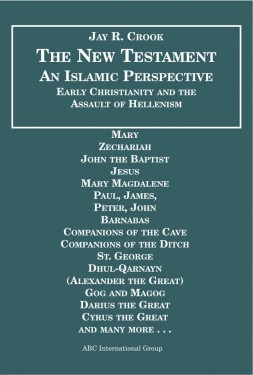 Tim King: Dr. Crook, perhaps you could tell us a bit about the problems with the beheading story. As I understand it, you investigated the chronology. Had you raised the issue before?
Tim King: Dr. Crook, perhaps you could tell us a bit about the problems with the beheading story. As I understand it, you investigated the chronology. Had you raised the issue before?
Dr. Crook: Yes, I discussed the problem in passing in The New Testament: An Islamic Perspective that was published several years before I came to know Ace Knight or his theories. Taken alone, the story of John’s being beheaded at the behest of Herod’s daughter-in-law makes good reading. Richard Strauss’ opera based on the story, Salome, is one of my favorites. The problem arises when one tries to correlate the Biblical story with the writings of Josephus. As Ace has pointed out, Josephus was not a witness to these events, but rather reporting them as an historian does. Josephus was born c. 37 or 38 CE and died about the year 100. Most Biblical scholars date the alleged crucifixion of Jesus at 29 or 30 CE; some, however, opt for a later date. Be that as it may, the gospels are absolutely clear that the beheading of John took place before the crucifixion.
Tim King: Yes, in the first year of Jesus’ mission, I believe.
Dr. Crook: That is correct. That would make John’s death about 27 or 28 CE.
Tim King: What is the problem with that?
Dr. Crook: Just this, Josephus’ account of the imprisonment and execution of Yahya/John the Baptist for historical reasons that are discussed in Ace’s book, that account would place it in the middle of the fourth decade, say 35 or 36 CE and therefore years after the events of the crucifixion, not before.
In The New Testament: An Islamic Perspective, I wrote, “Josephus’ evidence creates a colossal chronological problem of enormous consequences.” That is still true. Since we also know that while the gospels portray John in their narratives primarily to introduce and testify to Jesus’ superior stature, we also know from Josephus, that John or Yahya was a major player on the Palestinian stage, not just a walk-on to herald the messiahship of Jesus.
Tim King: Why should we trust Josephus over the Gospels?
Dr. Crook: Why not? We know that the gospels were written to present Jesus from a more or less Graeco-Roman point of view, downplaying Jesus’ Jewishness. Many criticize Josephus for his desertion of a lost cause during the Jewish War, but he had no axe to grind concerning John. In fact, he seems to have admired him. In any event, Josephus’ evidence makes Ace Knight’s theory of John’s being on the cross possible. His theory cannot be dismissed out of hand for chronological reasons. I admire his work in bringing this much neglected prophet out of the shadows of comparative obscurity and restoring him to his rightful place as one of the major religious figures of human history. He is to be congratulated.
Tim King (turning back to Ace Knight): It seems as if Josephus depicts the Prophet Yahya (John the Baptist) as a powerful figure.
Ace Knight: Yes. And let me say that the Quran corroborates this as well: “O Zechariah! Truly We give you the good tidings of a boy. His name will be Yahya and We have not assigned it as a name-sake for anyone before.” (Q. 19:7) This Arabic word (samiy) is used twice in the Quran, once in reference to Yahya, and the other time it is used is in reference to God. “…Know you any name-sake for him (samiy) for Him ?” (Q. 19:65) In the famous Arabic lexicon Lisan al-Arab, the root s m w means “elevation or highness.” How significant is that, Tim?
Tim King: Very significant and very impressive!
Tim King: You also mention a wise man requests a protector from his Lord?
Ace Knight: Yes. Zachariah prays to his Lord for a protector. The key word here is waliy in 19:5, and other places in the Quran, it means “protector” rather than “heir” or “successor.” In this specific case, Zechariah prayed to his Lord: “And truly I have feared my defenders after me and my wife has been a barren woman. So bestow on me from that which proceeds from Your Presence a protector (waliy).”
His prayer for a protector was answered by God’s giving him a son, one with spiritual authority (sayyid) in chapter 3:39, “Then the angels proclaimed to him while he was one who stands invoking blessings in the sanctuary that God gives you good tidings of Yahya—one who establishes the word of God as true—a chief and a concealer of secrets and a prophet, among the ones who are in accord with morality.”
It is commonly thought that Zachariah was simply asking for a son; however, this misconception may be corrected by reading further into the text. After receiving this good news, Zachariah asked, “My Lord! How is it I will have a boy while surely I have reached old age and my wife is a barren woman.” Zachariah was asking how this would be possible, as he had not even contemplated being blessed with a son in his old age, and that with a barren wife.
If Zachariah were asking for a son, as has been suggested by Muslim scholars, why then did he ask such a question when God informed him of the impending birth? The truth is that Zachariah had not been asking explicitly for a son. He was asking God to send him a protector, from the same place where Mary received her provisions (rizq); hence “Give me from Your presence a protector (waliy)’ (Q. 19:5, 3:38).
If Zachariah wanted a son so badly as has been suggested by Muslim scholars, then why did he not just take a second wife? Polygamy was practiced in that time; this would be in accordance with the tradition of Abraham, whose wife Sarah was barren. Therefore, he married Sarah’s maidservant Hagar to father a child.
John the Baptist was of Levitical descent, and it is well known that the Levites were protectors/guardians of the sacred precincts. Yahya/John the Baptist ultimately became the protector/guardian of a sacred word: Messiah Jesus.
The Quran tells us that the Jews accused Mary of playing the harlot. That would make Jesus an illegitimate child. This accusation can be found in later Jewish traditions. If this be true, then Mary faced the threat of being thrown alive into a blaze of fire, as prescribed by Mosaic law: “and the daughter of a priest, if she profanes herself by playing the harlot, profanes her father; she shall be burned with fire” (Lev. 21:9). As for Jesus’ being labeled an illegitimate child, Jewish law states, “no bastard shall enter the assembly of the Lord, even to the tenth generation, none of his descendants shall enter the assembly of the Lord” (Deut. 23:2).
Jesus only revealed himself to a select few as an adult. Little wonder then that Jesus is so mysterious to the point that today some even deny the reality of his ever having existed. It was John the Baptist who would face the great opposition and not Jesus, and this is why I believe that God told him, “O Yahya, take the book with strength, and We gave him critical judgment while a lad.” (Q. 19:12)
Tim King: Very interesting!
Ace Knight: Tim, I want to add something before we end. If the title Messehu Esa is an exclusive one for Jesus in the Muslim tradition, then the title Sayyidina Yahya should also be an exclusive one for Yahya (John the Baptist). No one in Islamic history from the beginning of time until the present day has deserved this honorable title more than the son of Zachariah.
They were prophets of success not failure. Prophet Yahya features as a major player in this messianic story. The ungrateful tried to dismiss him from the story, but as God says, “They want to extuinguish the light of God with their mouths, but God refuses so that He may fulfill His light even though the ones who are ungrateful dislike it” (Q. 9:32) Also, “O humanity! Surely there has drawn near to you proof from your Lord. And We have sent forth to you a clear light.” (Q. 4:174)
Tim King (turning to Dr. Bakhtiar): Dr. Bakhtiar, I am well-aware of the wonderful work you have done to undo an over 1400 year misinterpretation of the Quran no longer allowing Muslim husbands to beat their wives with your Sublime Quran translation and, this, the masterful Concordance of the Sublime Quran that you published which proves that the method of formal equivalence that you used in translating the Quran works. I also know that your translation is the only one that translates the word hasur as “concealer of secrets” in reference to John the Baptist or, as the Quran calls him, Yahya. As you are clearly aware of the work of Ace Knight on John the Baptist, do you believe that John the Baptist was on the cross instead of the Christian belief that it was Jesus on the cross?
Dr. Bakhtiar: Thank you, Tim. I believe that it certainly is a possibility.
Tim King: What difference would it have made if John the Baptist had been on the cross instead of Jesus?
Dr. Bakhtiar: That is a very important question, and the answer is not simple. Let me begin by saying that it is not a universally held Christian belief that Jesus died on the cross to save us from sin. The sin, by the way, that he is saving us from is the original sin committed by Adam, or in some cases the belief is that Eve committed this sin and then the belief expanded to include all sins that I commit in my lifetime. As a Muslim, I do not believe in original sin or that anyone died to save me from my sins, but that I am accountable to God only for my sins, the sins I commit. Therefore, we would have to let go of the idea of original sin.
Secondly, as a Muslim I believe in One God, not Three. I am joined by many Christian groups in this belief, Christians like the Unitarians, Christadelphians, Christian Scientists, Iglesia ri Cristo, Jehovah’s Witnesses, some groups of Latter Day Saints, Oneness Pentecostals and the United Church of God. Therefore, I could be considered to be a Christian from one of these groups as far as the belief in the Trinity is concerned.
As a Muslim, I believe that Jesus was the Messiah, that he was born of the Virgin Mary, that he spoke from the cradle and performed many miracles during his lifetime. I believe that he was gathered or raised to God, living to return at the end of time. These are the beliefs of Muslims in regard to Jesus, the Christ. By the way, the pastor who burned the Quran unfortunately also burned the name of Jesus Christ in his ignorance about Islam.
I also believe that Jesus did not die on the cross, but that “a likeness to him of another was shown to them.” Based on the work that Ace Knight has done, it is certainly possible that the “likeness of Jesus” could very well have been his first cousin, John the Baptist. Having said that, what difference would it have made if John the Baptist had been on the cross instead of Jesus?
The most conclusive arguments in Islamic tradition to prove or disprove something is to use the Quran to prove another point in the Quran. This Ace Knight has done in his work on John the Baptist, in particular, John having been a concealer of secrets. Therefore, John, the concealer of secrets, by being on the cross would have shown the world the highest virtue, that of altruism. He would have been willing to die in place of the Messiah so that the Messiah could continue his mission.
If Jesus was not crucified, and John was in his place, all of humanity could come to agree that Jesus was a Messiah. This would include Jewish and Muslim belief as well as Christian belief. There would be agreement. The Jewish people are still waiting for the first coming of a Messiah. The Muslims and Christians are waiting for the second coming of the person they recognize as the Messiah, Jesus Christ. Buddhists and Hindus and people of all other faiths would have no theological issues with Jesus being a Messiah.
Therefore, if all Christians could recognize the messiahship of Jesus and not insist that a person believe in Jesus having died on the cross to save them from sin, there would be peace among the people of faith. All would be working together in an altruistic, compassionate way to prepare for the coming of the Messiah. For some it would be the first coming and, for others, the second coming, but all would agree that would be the fulfillment of the Quranic description of John: “Peace be on him the day on which he was given birth and the day that he dies and the day that he is raised up, living” and the words of Jesus: “Peace be on me the day I was given birth and the day that I die and the day I am raised up, living.”
END OF INTERVIEW
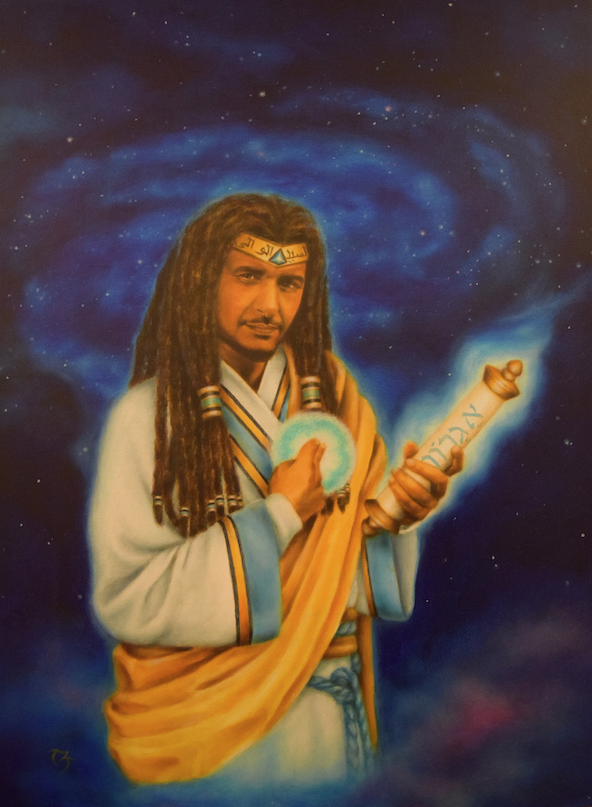
John the Baptist by Artist Toni L. Taylor

Ace Knight with his Boyz
 With almost 25 years of experience on the west coast and worldwide as a television news producer, photojournalist, reporter and assignment editor, Tim King is owner and Executive News Editor for of GlobalNewsCentre.com. His background includes covering the war in Afghanistan in 2006 and 2007, and reporting from the Iraq war in 2008. Tim is a former U.S. Marine who follows stories of Marines and Marine Veterans; he’s covered British Royal Marines and in Iraq, Tim embedded with the same unit he served with in the 1980′s.
With almost 25 years of experience on the west coast and worldwide as a television news producer, photojournalist, reporter and assignment editor, Tim King is owner and Executive News Editor for of GlobalNewsCentre.com. His background includes covering the war in Afghanistan in 2006 and 2007, and reporting from the Iraq war in 2008. Tim is a former U.S. Marine who follows stories of Marines and Marine Veterans; he’s covered British Royal Marines and in Iraq, Tim embedded with the same unit he served with in the 1980′s.
Tim holds awards for reporting, photography, writing and editing from traditional mainstream news agencies like The Associated Press and Electronic Media Association; he also holds awards from the National Coalition of Motorcyclists, the Oregon Confederation of Motorcycle Clubs; and was presented with a ‘Good Neighbor Award’ for his reporting, by the The Red Cross.
Tim’s years as a Human Rights reporter have taken on many dimensions; he has rallied for a long list of cultures and populations and continues to every day, with a strong and direct concentration on the 2009 Genocide of Tamil Hindus and Christians in Sri Lanka. As a result of his long list of reports exposing war crimes against Tamil people, Tim was invited to be the keynote speaker at the FeTNA (Federation of Tamil Sangams of North America) Conference in Baltimore, in July 2012. This is the largest annual gathering of North American Tamils; Tim addressed more than 3000 people and was presented with a traditional Sri Lanka ‘blessed garland’ and a shawl as per the tradition and custom of Tamil Nadu
In addition to local news, Tim specializes in writing about political and military developments worldwide; and maintains that the label ‘terrorist’ is ill placed in many cases; specifically with the LTTE Tamil Tigers in Sri Lanka, where it was used as an excuse to slaughter people by the tens of thousands; and in Gaza, where a trapped population lives at the mercy of Israel’s destructive military war crime grinder. At the center of all of this, Tim pays extremely close attention to the safety and welfare of journalists worldwide.


















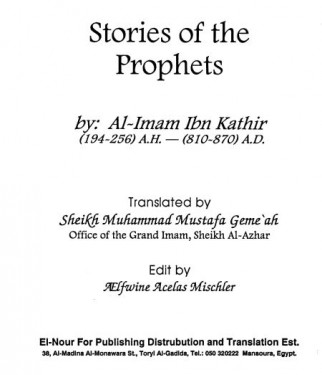
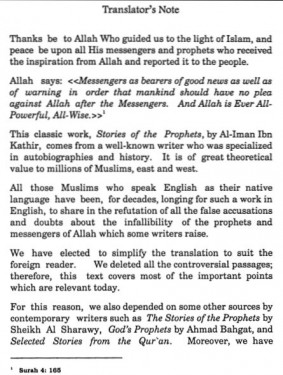

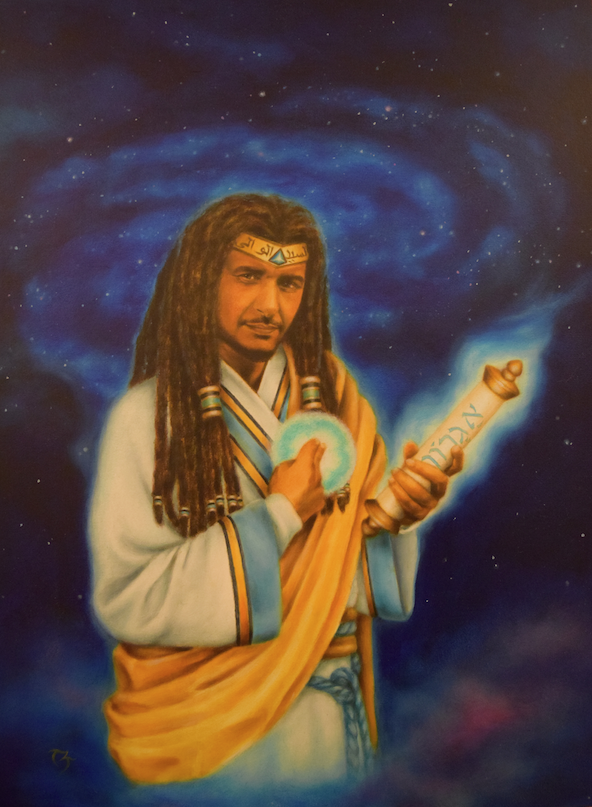
 London
London
 Oregon
Oregon





Leave a Reply
You must be logged in to post a comment.